Navigating Our Cultural Moment with Joy & Bravery: An Interview with Stephen McAlpine

I wonder how you feel about how Christianity is perceived in 2021 here in the West? For all the good will we might find ‘on the ground’, it’s hard to avoid the sense that the Christian faith is often treated not just as irrelevant, but worse still, toxic. We wake up and wonder, ‘How did we end up the Bad Guys?!’
So I was very glad to interview Stephen McAlpine, author of a new book aimed at everyday Christians that riffs on exactly that idea, Being the Bad Guys. I’ve followed Stephen’s blog for a while and he is known for his cultural perception and helping Christians and churches understand and engage with the culture(s) we find ourselves amongst. Have a read and then grab yourself a copy!
–
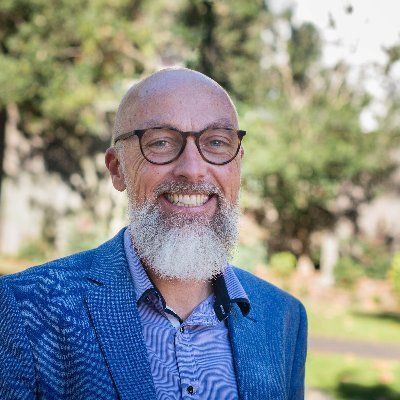
Stephen, you’re based in Australia, so first-up for those of us in the UK, tell us a bit about who you are…
I’ve worked as a church planter and pastor over the past couple of decades in Perth Australia, and have a background in journalism and writing. I started writing about cultural trends and the place of the church in a secular society a number of years back, and things kinda snow-balled from there in terms of writing and engagement with Christian groups over how to navigate the increasingly hostile secular space.
I don’t speak into that space in a disinterested way: my wife Jill runs a psychology practice and sees the pressures of late modern life taking their toll on clients. And we have two children who are going to face a more confronting secular setting than even we have. Perth is an easy place to live – (all too easy!) – so getting people to even think about life beyond what they can see or buy, or beyond the beaches of Perth – is often hard.
I have a couple of roles currently; one is as a national communicator for a evangelistic organisation in Australia called City Bible Forum. I work alongside a Scot called David Robertson and we create content around issues to do with faith and life in a secular setting. I also help pastor a church that has lost its preaching pastor, so I have recently moved on from our original church plant to help this other church.
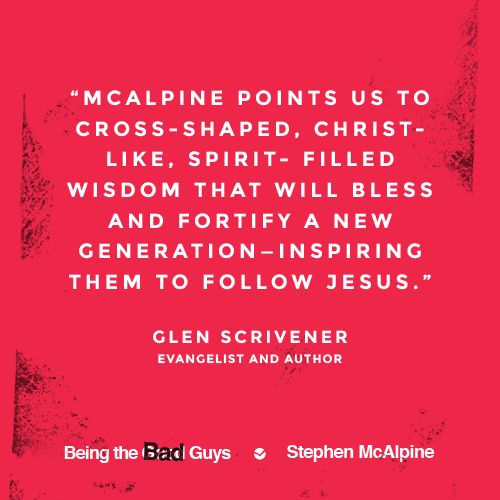
So you’ve written this book, Being the Bad Guys, which is clearly an eye-catching title – with an eye-catching cover to go with it! What led you to write it?
Thanks! The title comes from a line in a great movie, Falling Down, in which the key character finds himself on the wrong side of the law one day. As he is being confronted by the police, he asks “You mean I’m the bad guy? How did that happen?”
For me that’s the discombobulation that many Christians feel in a secular setting in which Christianity is increasingly viewed not merely as irrelevant, but as hostile to the vision of human flourishing that the culture is headed towards. Christian ethics in the area of sexuality is especially seen as problematic, and many Christians are finding themselves unsure of how they got to be “the bad guys” and what they should or can do about it, if anything. And there is a whole political, legal and cultural push to enshrine and enforce a vision of human flourishing that is anathema to the gospel.
I’m guessing that no one really wants to be the bad guys. Who’s this book for – and what are you hoping to communicate?
True! No one does. And for a season or so the Christian position on culture was that we needed to seek increasing relevance. I think that approach was wrong, and failed to see the cultural shift that was coming. Christianity is not viewed as a viable option in the public marketplace of ideas, but as a problematic belief system that is holding back our cultural march towards authenticity and freedom.
I looked around for an accessible book for workers, for students, for families, that would help them understand how that shift had occurred, but couldn’t find one. But it’s not just about understanding the shift, it’s about helping churches and Christian communities help their people navigate that space joyfully and bravely, even if the culture views them as the “bad guys”.
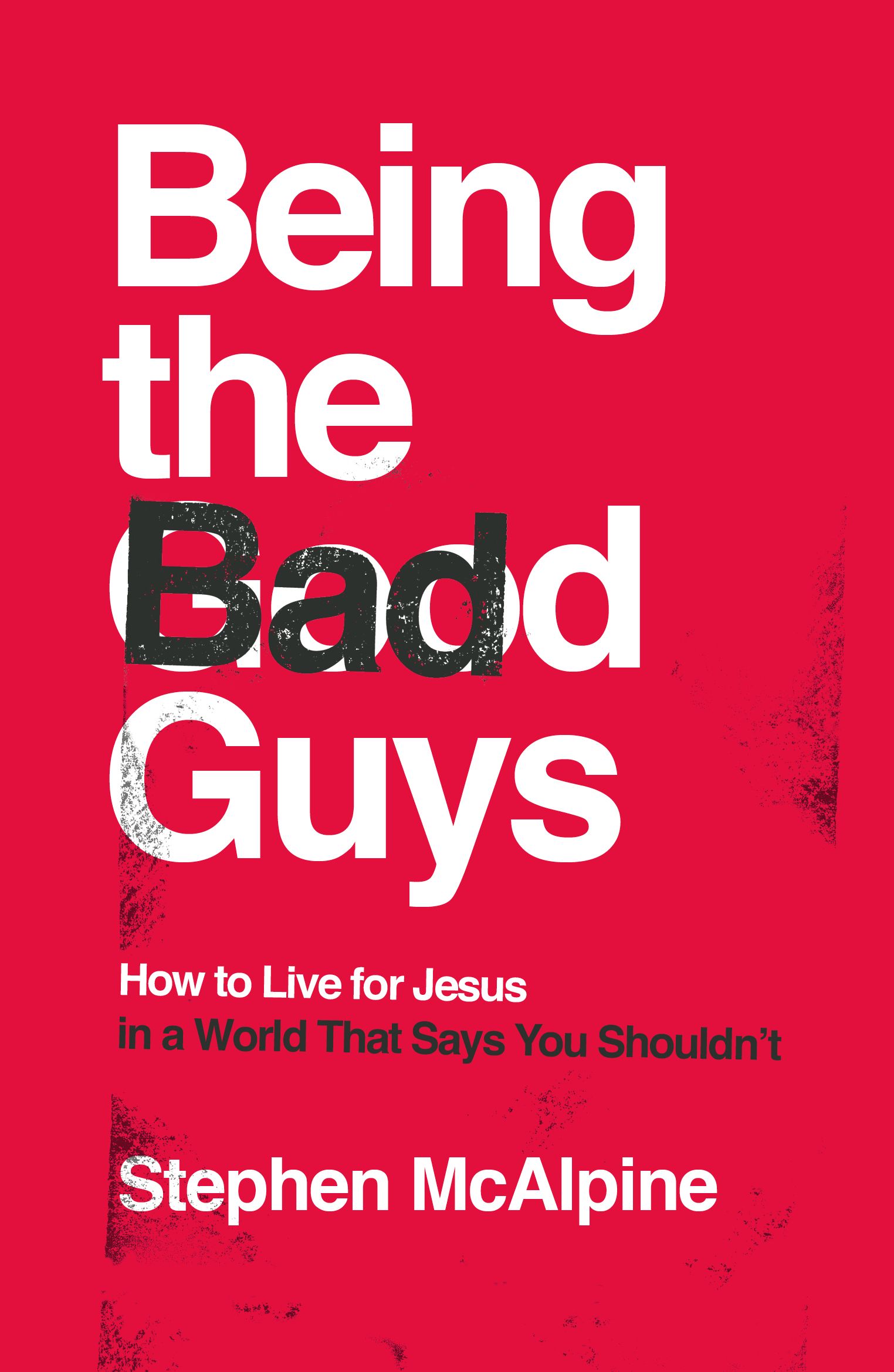
Maybe some Christians are more inclined to want to fit in and avoid controversy, whereas others can seem to want to go looking for a fight. What do you think is a good posture for Christians who want to be faithful to Jesus in a post-Christian culture?
Yes, that’s true. It’s well documented that there are a variety of stances to the shift in the public square. Many Christians risk being tempted – indeed have been tempted – to water down the gospel truths to fit in, while others have figured that we could win political power again (and that’s played out poorly in the US recently). Still others have gone into despair and assumed that it’s all over!
A good posture is to be joyful, but bold. To be, in the words of a friend of mine, Greg Sheridan the Foreign Editor of The Australian newspaper, “happy warriors”. There’s nothing wrong with standing up for what you think is right and true, but the gospel gives us a hope beyond what we have in this age. Central to this is a reinvigoration in our churches so that we better grasp the gospel message, and that we live out hope-filled and grace-filled lives as communities, ready to offer a thirsty world the water of life, after they have sucked at the sand of the broken wells on offer in the culture. For make no mistake, the whole utopian narrative of authentic freedom and sexual identity as the core of who we are as humans will let people down. It already is.
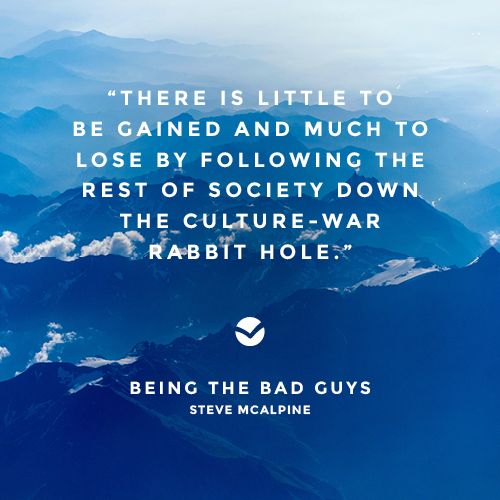
And we also need to disciple the next generation – our children – in a thick and rich manner – ensuring that they have gospel communities to belong to that will support them through the increasingly hostile post-Christian secular environment, which often presents itself as a glittering and dazzling viable option to the supposedly retrograde biblical community.
Obviously your immediate context is Australia, but I know you’ve spent time in the UK. Do you have any sense of how things might be different in the UK and the US – and did that shape the book at all?
Australia has been the most secular the longest. So in a sense this book is a gift to the UK and the US from the future. Read it now to see what is coming.
All three are examples of late modern secular nations, who have, to varying degrees been built upon a Christian framework. Australia has always been lazily secular, but the UK has outstripped my home country in terms of Christian fall-away in the culture. There’s also a faster ramping up in the UK of what I call “the sexular age”, in which our institutions are increasingly seen as vehicles to push an understanding of humanity and what makes for its flourishing, at a pace that would have surprised us ten years ago.
The US is different again. It’s a religious place, whether that’s orthodox religion or the new sexular religions that the institutions are espousing. Evangelicalism in the USA has an increasingly chequered record in terms of its push for political power, while at the same time being seen to be hypocritical in terms of its own actions. There has been a dramatic fall away from a common understanding of human flourishing in the US, to the point where tribalism and conflict seem to be the future. Many Christians in the US assume that theirs is a Christian country and feel that if they could just get the right person in the White House things would turn around. That completely discounts the fact that politics is downstream of culture, and that the major cultural institutions – old media and new – are weighted heavily against the Christian framework.
You give a really helpful analysis of how our culture has ended up where it is – and its relationship with Christianity. What’s your take on how this might change over the coming decades?
I have a sense that Christianity will regain its impact and its credibility when it moves to the margins of the culture and becomes a creative minority that can speak with some prophetic insight into the centre. We cannot believe that somehow the church can only influence people when it is in power – in fact that model is shown to be increasingly flawed.
And we cannot discount the fact that bad ideas don’t work. The whole push to centre human identity in our sexuality is already reaping a bitter harvest. The body count from our cultural tsunami is mounting. The church must be ready as an alternative to the culture, and to be so distinct – “attractively repellant” I call it – as to be surprising and different to a generation that has never darkened the doors of a church community, but that is looking for a way past our hostile culture’s “endless cycle of fiery denunciation” as Douglas Murray puts it. We have a gospel message of grace and forgiveness in Christ that is superior in terms of its outcomes (by virtue of being the truth!) to anything the culture can offer.
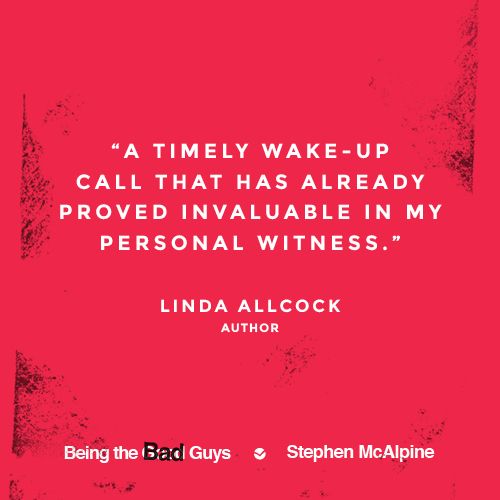
Lastly, what’s your hope and prayer for the Western church at the moment and what would be your advice for pastors who are feeling the discomfort of being sidelined or seen as toxic in their communities?
My prayer would be for churches to hold their nerve and for pastors to see their role as equipping people for life in Babylon on Monday morning, rather than figuring ways to keep their people busier and busier doing programs. People are tired, the workplace and education settings they attend are alternately hostile to their faith, or enticing to their sinful proclivities. Pastors need to stick to the basics of preparing exiles and strangers for life as exactly that, rather than simply assuming what the average Christian life Monday to Saturday looks like. Pastors need to get to know the pressures their people face, in order to pray for them and encourage them to keep going.
–
Thanks so much Stephen for taking the time to answer my questions!
Pick up or pre-order a copy of Being the Bad Guys from the publisher here, which releases on Feb 1st.